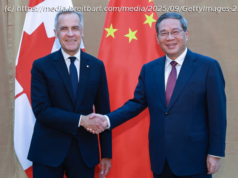Currency has gained about 9 per cent against the US dollar in a year
China’s forex regulator has warned residents and companies not to “gamble” on the yuan’s exchange rate, as the currency’s rapid appreciation raises concerns about its impact on Chinese exports.
The warning from Wang Chunying, head of the international payments department at the State Administration of Foreign Exchange, came after the yuan has gained about 9 per cent against the US dollar in the last 12 months.
That has fuelled talk that China is on a similar trajectory to Japan after it signed the Plaza Accord in 1985 – to weaken the US dollar against the yen, resulting in a sharp rise in the Japanese currency – when it was under pressure from Washington to cut its trade surplus.
In an interview with state news agency Xinhua over the weekend, Wang did not touch on trade tensions with the US, but said “the yuan has entered a stage of two-way fluctuation”. She said foreign exchange purchases should be based on real demand rather than speculation on the yuan’s future movement.
“Especially for companies, they should not use financial derivatives as a tool to make money,” Wang said. “Companies should have the awareness.”
Wang said it was important to use derivatives to fix operating costs. Companies, which usually had a strong need for forex, should hedge the risk of exchange rate fluctuations and not “gamble” on the rate in any way, she added.
Spiralling trade tensions with the United States are one factor behind the strengthening of the yuan and “there are similarities” between China now and Japan in 1985, according to a research note by Citic Securities last week.
The foreign exchange regulator said in its annual international payments report on Thursday that the yuan’s exchange rate had been fluctuating, which was helpful for “rational” investment.
Beijing is trying to balance capital inflows and outflows as it remains wary of risks that could destabilise the financial market.
The regulator listed rising trade protectionism, the tightening monetary policies of major countries and geopolitical conflicts as factors that could reverse market sentiment and cause turmoil in the global capital and exchange rate markets.
The yuan strengthened sharply this week, with the onshore and offshore rates against the US dollar setting fresh records since 2015, when the central bank in a landmark reform allowed further flexibility in the exchange rate movement.
So far this year, the yuan has risen by 3.7 per cent against the US dollar in the onshore market. The currency gained 6 per cent against the greenback in 2017.
In contrast, the Dollar Index, which measures the value of the greenback against six major currencies including the euro and sterling, has remained weak since US President Donald Trump took office. The index has struggled at 90 since the middle of January after hitting a record high of 103.8 in January 2017.
The stronger yuan comes as a trade war looms between the world’s two largest economies, with Trump demanding China cut its trade surplus with the US by US$100 billion a year and his administration planning to release details of punitive tariffs on up to US$60 billion worth of Chinese products.
Beijing has hit back with its own tariffs on US imports, including agricultural products. It could also impose duties on US soybeans – China is their main export destination – if the trade confrontation worsens.
Wang also said the annual quota of US$50,000 worth of foreign exchange purchases was enough to meet the demands of individuals, Xinhua reported.






